
Medina: The Radiant City
Medina, known as Al-Madinah Al-Munawwarah, is one of the most revered cities in the Islamic world. Situated in the Hejaz region of Saudi Arabia, it is the second holiest city for Muslims after Mecca. The city is home to the Prophet's Mosque, which is one of the largest and oldest mosques in the world. Pilgrims from across the globe visit Medina to offer their prayers and pay homage to the Prophet Muhammad. Medina is not just about religious significance. The city boasts a rich cultural heritage and offers a glimpse into the historical Islamic era. Visitors can explore various museums, ancient markets, and traditional crafts. The Quba Mosque, another significant religious site, is the first mosque ever built in Islam and a must-visit for any tourist. The city also offers serene parks and scenic landscapes, providing a peaceful retreat for visitors. The local cuisine in Medina is another highlight that attracts tourists. From traditional Arabian dishes to modern international flavors, the city offers a diverse culinary experience. Markets like the Al-Madina Souq are perfect for shopping and trying out local delicacies. Medina's hospitality, coupled with its rich history and culture, makes it a unique and unforgettable destination for any traveler.
Local tips in Medina
- Respect cultural norms: Dress modestly and be mindful of local customs, especially in religious sites.
- Visit during cooler months: The best time to visit Medina is between October and March when the weather is more pleasant.
- Plan mosque visits: Non-Muslims are not allowed inside the Prophet's Mosque but can visit its surroundings and nearby sites.
- Stay hydrated: Medina can get very hot, so always carry water with you.
- Early morning visits: To avoid crowds, visit popular sites like the Quba Mosque early in the morning.
- Local souvenirs: Look for dates, Arabian perfumes, and traditional crafts in local markets.
Medina: The Radiant City
Medina, known as Al-Madinah Al-Munawwarah, is one of the most revered cities in the Islamic world. Situated in the Hejaz region of Saudi Arabia, it is the second holiest city for Muslims after Mecca. The city is home to the Prophet's Mosque, which is one of the largest and oldest mosques in the world. Pilgrims from across the globe visit Medina to offer their prayers and pay homage to the Prophet Muhammad. Medina is not just about religious significance. The city boasts a rich cultural heritage and offers a glimpse into the historical Islamic era. Visitors can explore various museums, ancient markets, and traditional crafts. The Quba Mosque, another significant religious site, is the first mosque ever built in Islam and a must-visit for any tourist. The city also offers serene parks and scenic landscapes, providing a peaceful retreat for visitors. The local cuisine in Medina is another highlight that attracts tourists. From traditional Arabian dishes to modern international flavors, the city offers a diverse culinary experience. Markets like the Al-Madina Souq are perfect for shopping and trying out local delicacies. Medina's hospitality, coupled with its rich history and culture, makes it a unique and unforgettable destination for any traveler.
When is the best time to go to Medina?
Iconic landmarks you can’t miss
Al Masjid an Nabawi
Discover the serenity and spiritual significance of Al Masjid an Nabawi, a stunning mosque and a major pilgrimage destination in Madinah.
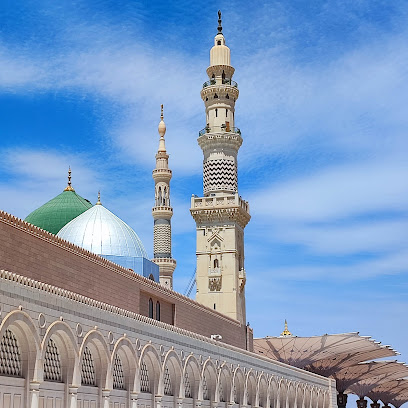
Masjid Quba
Discover the profound history and architectural beauty of Masjid Quba, the first mosque in Islam, located in the heart of Madinah.
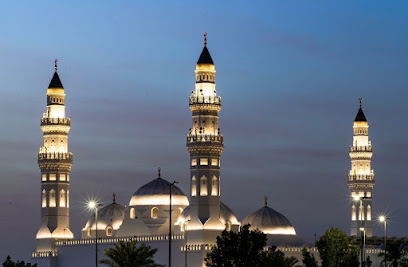
King Fahd Central Park
Discover the serene beauty of King Fahd Central Park in Madinah, a lush oasis perfect for relaxation, outdoor activities, and community engagement.
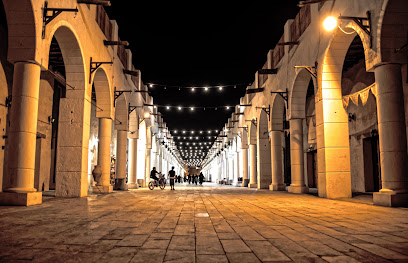
Archers' Hill Uhud
Explore Archers' Hill Uhud, a historic site in Madinah that offers breathtaking views and deep insights into Islamic heritage.
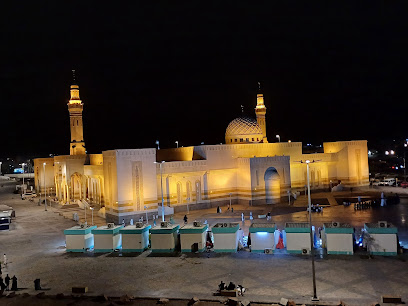
Masjid Al Qiblatain
Explore the historic Masjid Al Qiblatain in Madinah, a pivotal site in Islamic history where the direction of prayer was changed.
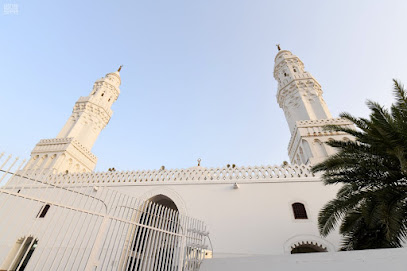
The Seven Mosques
Discover the spiritual essence of The Seven Mosques in Madinah, a historic destination of tranquility and architectural beauty.
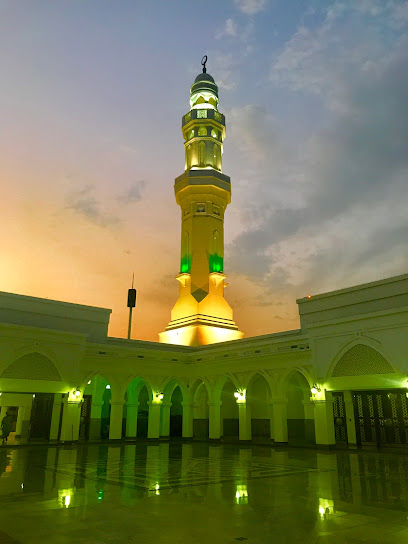
Al Hijrah Walk
Explore the scenic Al Hijrah Walk in Madinah, where breathtaking landscapes meet rich cultural heritage for an unforgettable hiking experience.
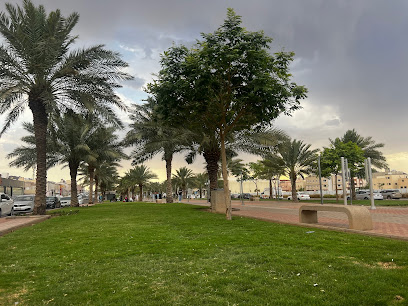
متحف السكة الحديد
Explore the Iron Museum in Madinah: A captivating journey through the artistry and history of iron craftsmanship in Saudi Arabia.
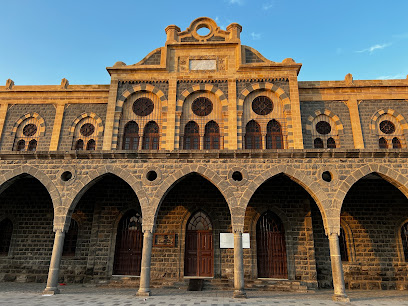
Dar Al Madinah Museum
Explore the fascinating history and cultural heritage of Madinah at Dar Al Madinah Museum, a must-visit destination for every traveler.
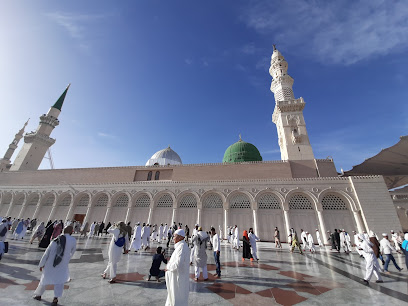
Prince Mohammed bin Abdul Aziz Park
Experience the tranquility of Prince Mohammed bin Abdul Aziz Park, a lush garden oasis in Madinah perfect for relaxation and family moments.
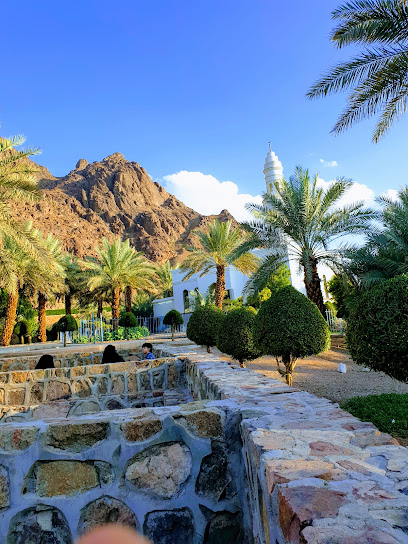
Quba Front
Explore the architectural beauty and cultural heritage of Quba Front in Madinah, a top tourist attraction in Saudi Arabia.
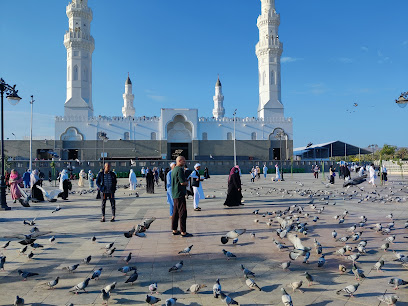
Masjid Al Ghamamah
Explore the serene beauty of Masjid Al Ghamamah, a historic mosque in Madinah where spirituality meets stunning architecture.
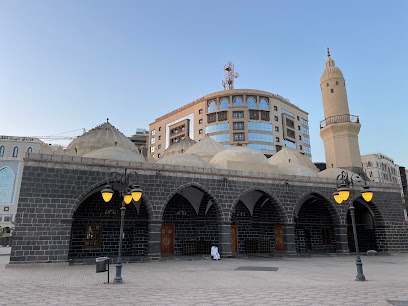
The International Fair and Museum of the Prophet's Biography and Islamic Civilization
Discover the profound impact of the Prophet Muhammad's life at The International Fair and Museum of the Prophet's Biography and Islamic Civilization.
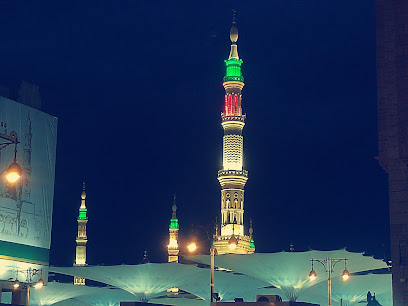
Anbariya Mosque
Discover the tranquil beauty of Anbariya Mosque, a must-visit tourist attraction in Madinah, blending rich Islamic heritage with stunning architecture.
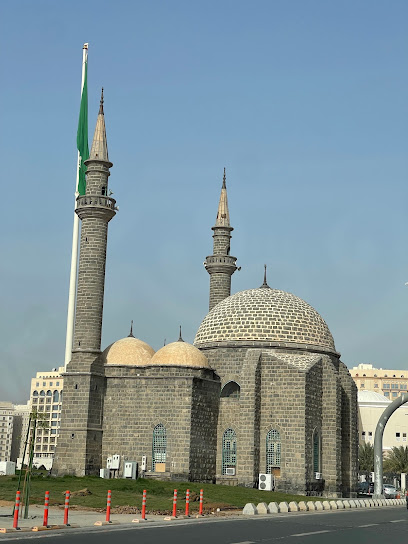
Wadi E Jin
Discover the serene beauty and rich history of Wadi E Jin, a stunning landmark in Madinah, perfect for nature lovers and history enthusiasts alike.

Unmissable attractions to see
Al Masjid an Nabawi
Explore Al Masjid an Nabawi, a spiritual sanctuary and architectural marvel in Madinah, offering a profound experience for all visitors.
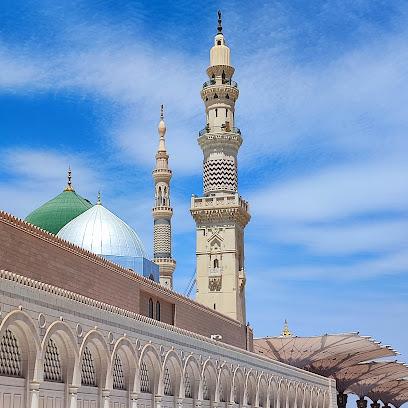
Masjid Quba
Discover the historical and spiritual essence of Masjid Quba, the first mosque in Islam, a must-visit attraction in Madinah.
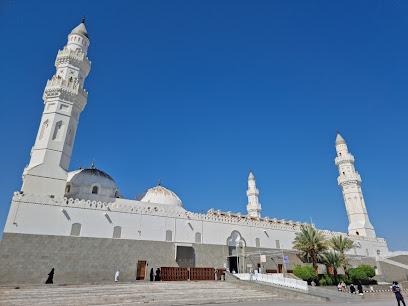
King Fahd Central Park
Discover tranquility at King Fahd Central Park in Madinah, where lush gardens and serene paths offer a perfect escape for relaxation and community engagement.
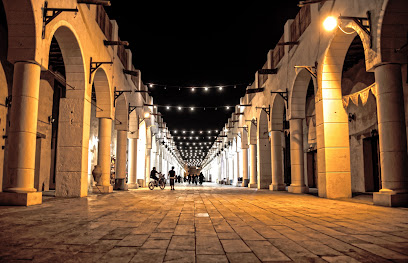
Al Hijrah Walk
Discover the serene beauty of Al Hijrah Walk in Madinah, where nature meets tranquility for an outdoor adventure like no other.
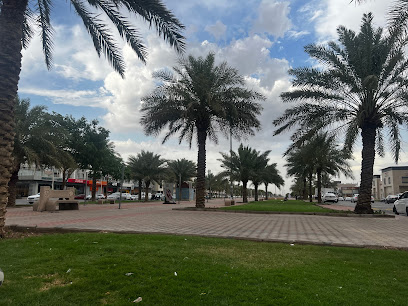
متحف السكة الحديد
Explore the Iron Museum in Madinah, a captivating tourist attraction showcasing the region's rich history and cultural heritage through iron artifacts.
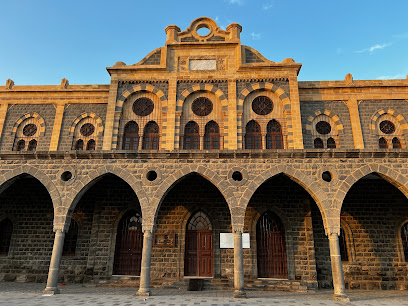
Ghars well
Explore Ghars Well in Madinah, a historical site that showcases the region's rich heritage and the vital role of water in its history.
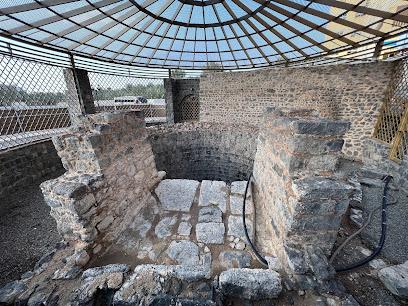
Dar Al Madinah Museum
Experience the rich history and culture of Madinah at Dar Al Madinah Museum, a must-visit for history enthusiasts and curious travelers alike.
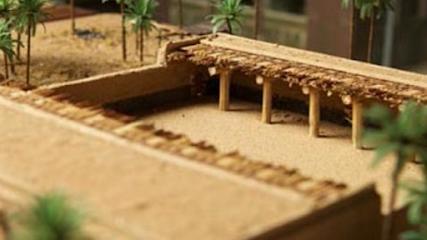
Mosque of Al-Ghamama
Explore the Mosque of Al-Ghamama in Madinah: A serene spiritual retreat steeped in Islamic history and architectural beauty.
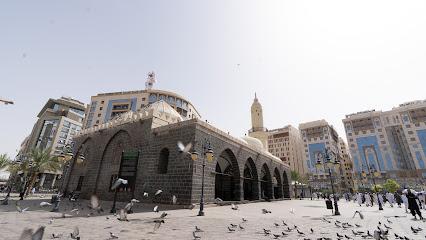
Prince Mohammed bin Abdul Aziz Park
Discover tranquility and cultural charm at Prince Mohammed bin Abdul Aziz Park in Madinah, a perfect retreat for nature lovers and families.
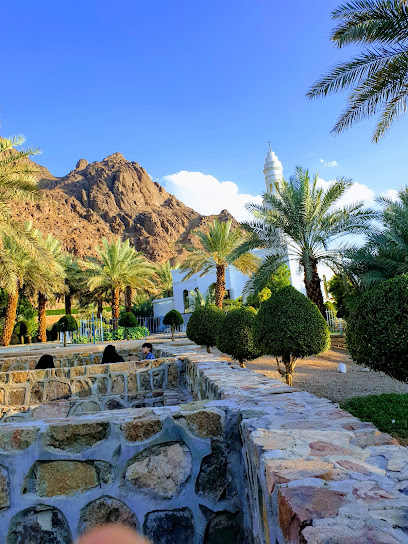
Masjid Al Ghamamah
Discover the tranquility of Masjid Al Ghamamah, a significant mosque in Madinah, where history and spirituality converge in a serene setting.
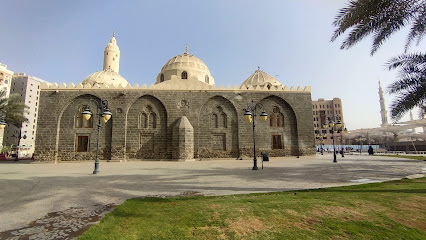
Reef Al Bustan Garden
Discover the serene beauty of Reef Al Bustan Garden in Madinah, a perfect oasis for relaxation, family fun, and breathtaking photography.
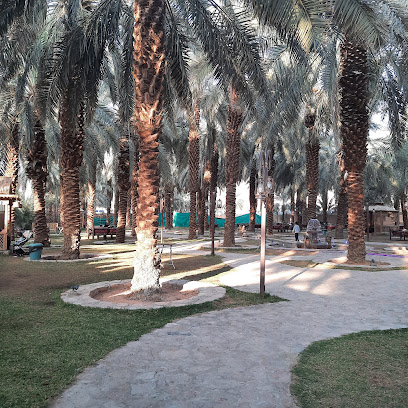
Al Khalidiyyah Park
Experience the tranquility of Al Khalidiyyah Park, a green haven in Madinah perfect for picnics, strolls, and family fun amidst lush landscapes.
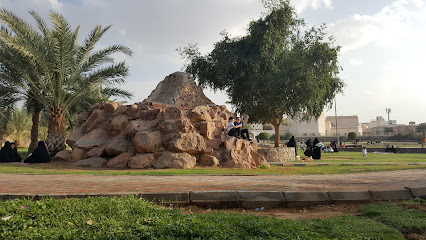
Quba Avenue
Quba Avenue: A vibrant journey through the heart of Madinah, where culture, shopping, and local flavors await every traveler.
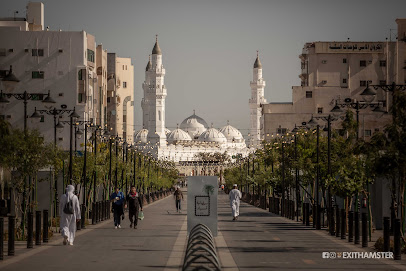
Madinah Jabal Magnet
Discover the wonders of Madinah Jabal Magnet, a unique magnetic hill attraction in Wadi Jinn, where the laws of gravity seem to bend.
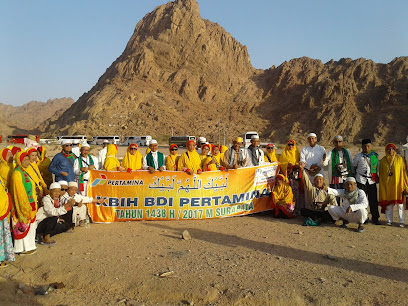
Al Aswaf Garden
Experience the tranquility of Al Aswaf Garden in Madinah, a serene escape filled with lush greenery and beautiful landscapes for the perfect retreat.
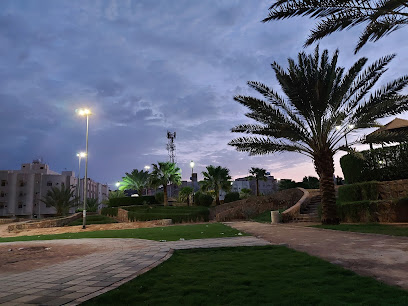
Essential places to dine
Zaitoon Restaurant مطعم زيتون
Experience the authentic taste of Saudi Arabia at Zaitoon Restaurant in Madinah—where tradition meets modern dining.
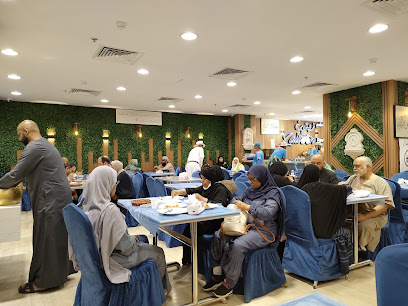
Al Romansiah
Discover authentic Saudi flavors at Al Romansiah in Madinah – where culinary tradition meets modern hospitality.
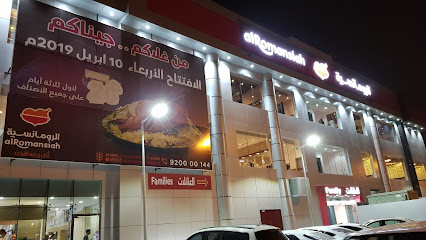
Chefs Markets
Discover authentic Saudi flavors at Chefs Markets in Madinah—where every dish tells a story.
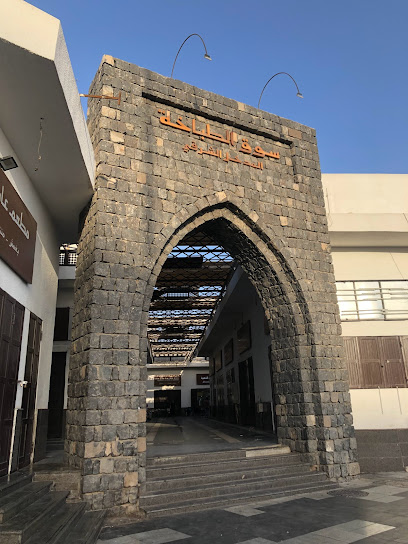
Memaz Restaurant & Cafe
Experience the vibrant flavors of Saudi Arabia at Memaz Restaurant & Cafe in Madinah - where tradition meets modern dining.
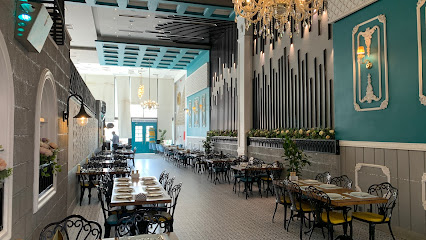
Swiss House
Experience the fusion of tradition and taste at Swiss House in Madinah—where every meal tells a story.
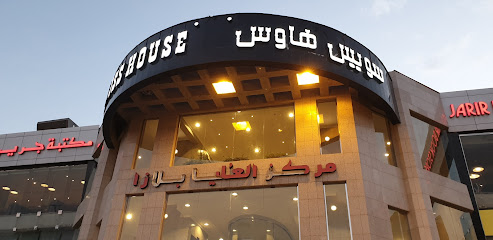
شعيب
Discover the rich flavors of Saudi Arabia at شعيب - where tradition meets modern dining in Madinah.
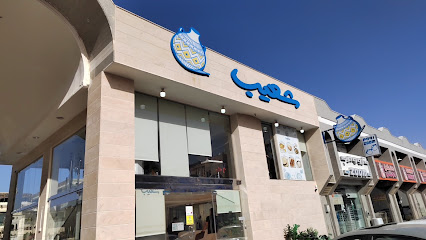
Al-Atbaq
Experience authentic Pakistani cuisine at Al-Atbaq in Madinah – where flavors come alive in a welcoming atmosphere.
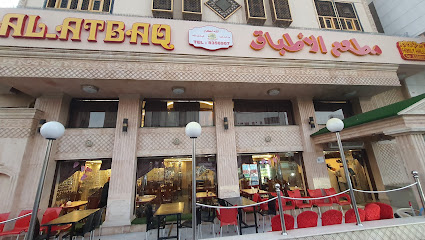
The View
Experience delightful cuisine and stunning views at The View in Madinah - where every meal is a feast for the senses.
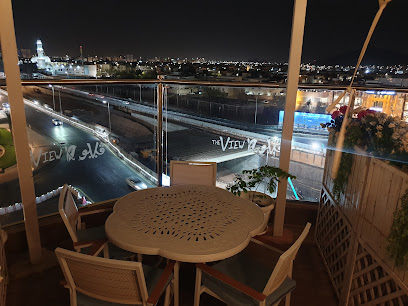
Hyderabad House
Experience authentic Indian cuisine at Hyderabad House in Madinah – where every meal is a celebration of flavor and culture.
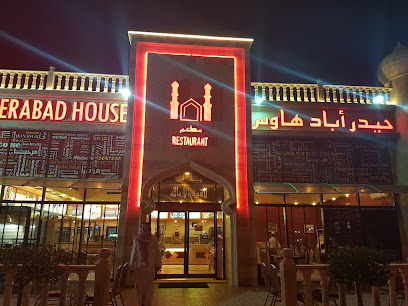
Cacao & More
Discover Cacao & More in Madinah – where delectable treats meet cozy ambiance for an unforgettable dining experience.
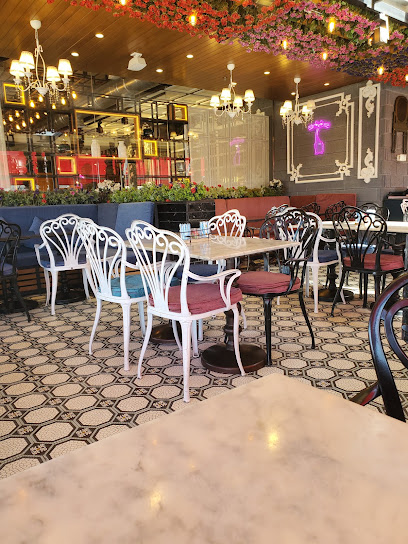
Shing Yang Chinese Restaurant
Discover the authentic flavors of China at Shing Yang Chinese Restaurant in Madinah - where tradition meets modern dining.
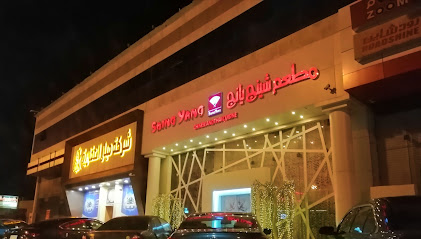
Beiruti
Discover Beiruti: A Lebanese culinary haven in Madinah serving exquisite barbecue and shawarma dishes amidst a welcoming atmosphere.
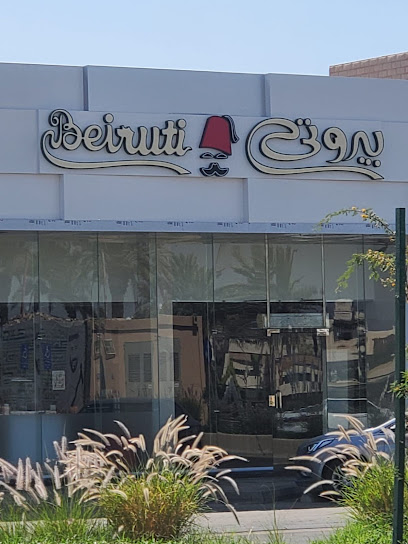
Town Pour
Experience delightful Italian cuisine and fresh pastries at Town Pour, a top-rated dining destination in Madinah's Bir Uthman district.
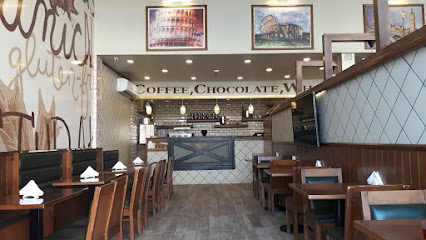
Grill day
Discover the culinary delights of Grill Day in Madinah – where American meets Mexican in a vibrant dining experience.
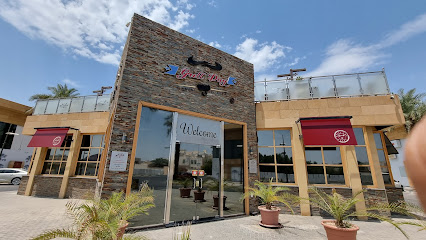
Chopper
Experience the best of American barbecue at Chopper in Madinah - where flavor meets family-friendly dining.
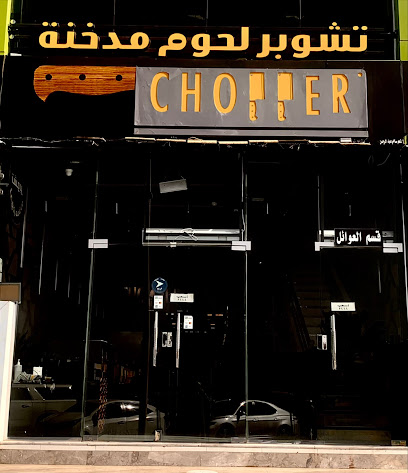
Markets, malls and hidden boutiques
Al-Rashid Mega Mall
Explore the ultimate shopping experience at Al-Rashid Mega Mall in Madinah, where fashion, food, and fun come together for an unforgettable visit.
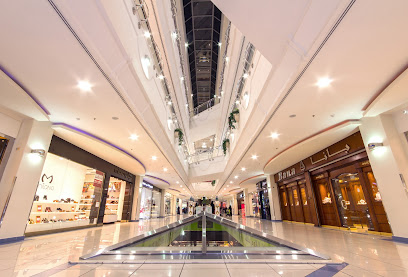
Al-Noor Mall
Experience the ultimate shopping destination in Madinah at Al-Noor Mall, where luxury meets convenience in a vibrant atmosphere.
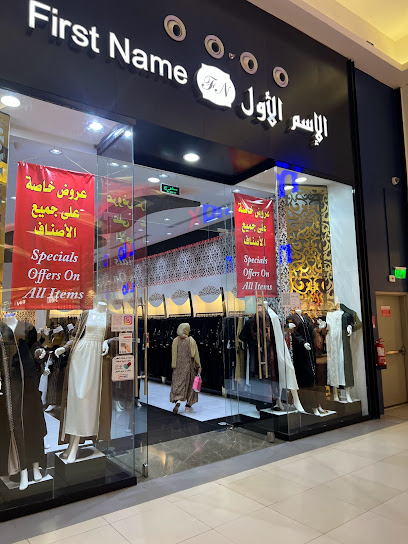
Alqarrat Mall
Experience shopping, dining, and entertainment at Alqarrat Mall in Madinah – a vibrant destination blending modern retail with local culture.
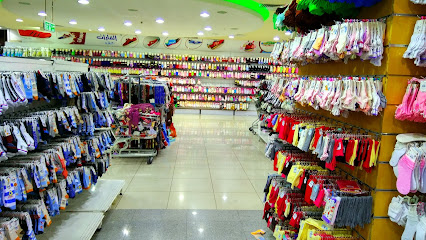
Al Manar Mall
Discover Al Manar Mall in Madinah: A vibrant shopping experience featuring diverse stores, delectable dining, and family-friendly entertainment.
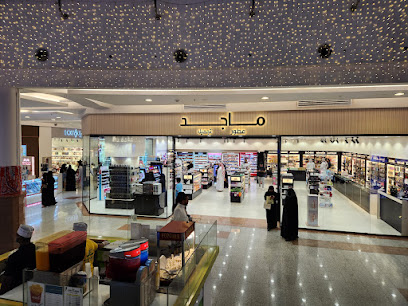
Madina Mall
Explore Madina Mall: A vibrant shopping destination in Madinah with unique clothing stores and local culture experiences.
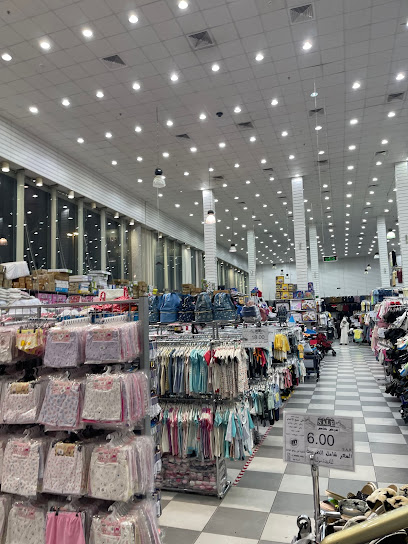
Souq Al Gharbiah
Explore Souq Al Gharbiah in Madinah for a unique shopping experience showcasing local culture, traditional crafts, and international brands.
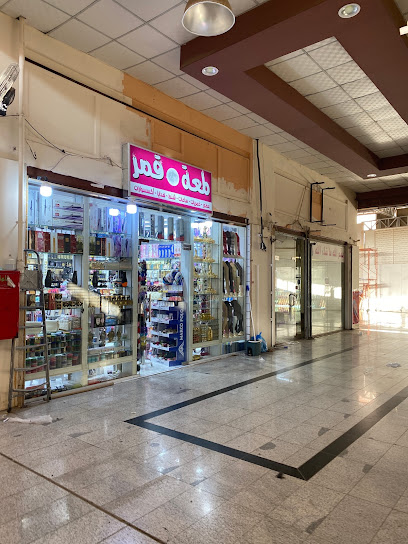
Daiso Japan - Al Mannar Plaza Madina
Explore a world of affordable treasures at Daiso Japan in Al Mannar Plaza, Madinah – your ultimate shopping destination for unique finds.
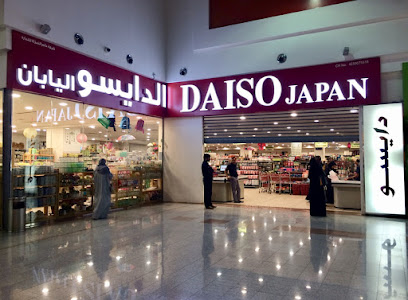
H&M
Discover stylish fashion at H&M Madinah, where trendy meets affordable in the heart of the city.
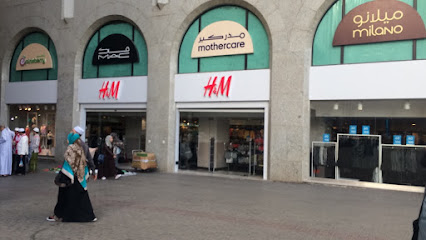
Souq Khudra
Discover the essence of Madinah at Souq Khudra, a vibrant shopping mall offering fresh produce, local delicacies, and cultural treasures.
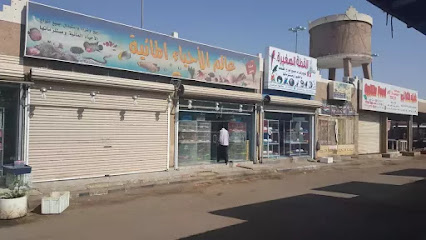
Quba Walkway Souq
Discover the Quba Walkway Souq - a vibrant shopping mall in Madinah offering local crafts, delicious food, and an immersive cultural experience.
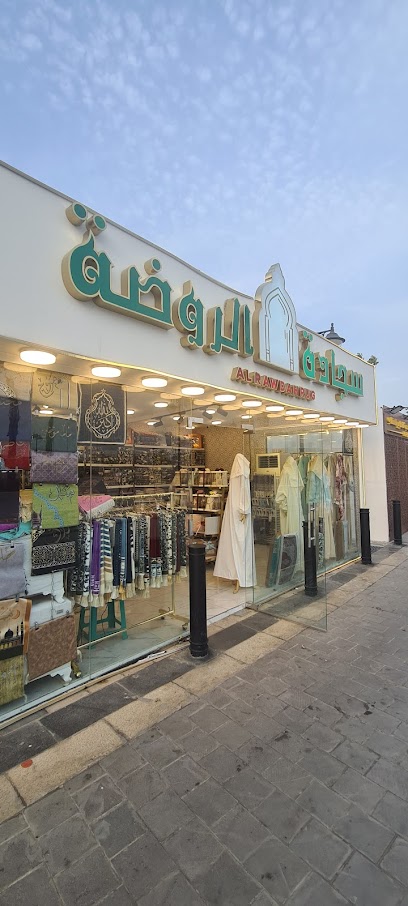
Roghan e Balsan
Explore the essence of Arabian culture with unique gifts and exquisite perfumes at Roghan e Balsan in Madinah.
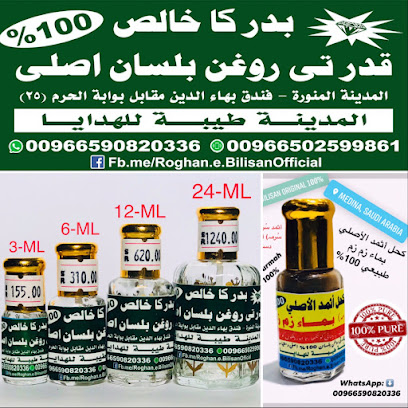
KHAIR AL-NAKHIL FOR DATES AND NUTS
Explore the finest organic dates and nuts at Khair Al-Nakhil in Madinah, a shopping experience that captivates all your senses.
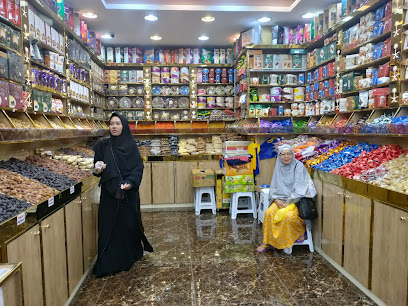
Everything For 5 SR
Explore Everything For 5 SR in Madinah, a unique shopping mall offering an array of products all for just 5 Saudi Riyals.
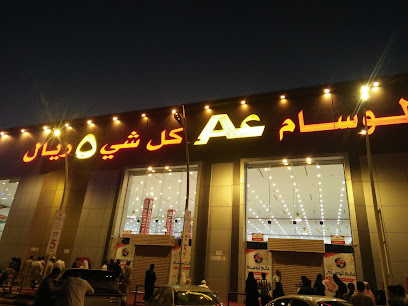
I Love Madina
Explore I Love Madina, a charming gift shop in Madinah offering unique local crafts and souvenirs that reflect the rich culture of this historic city.
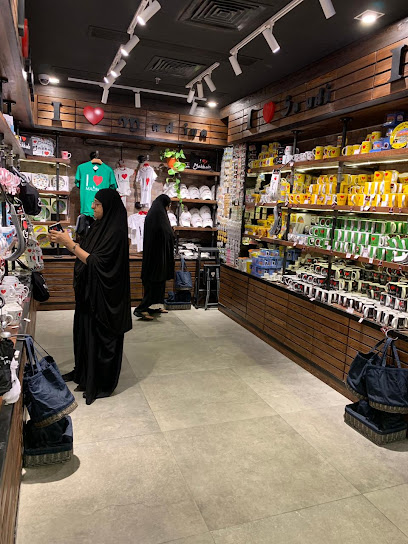
Balsan Oil
Explore the essence of Arabian culture at Balsan Oil, your go-to destination for unique gifts and exquisite perfumes in Madinah.
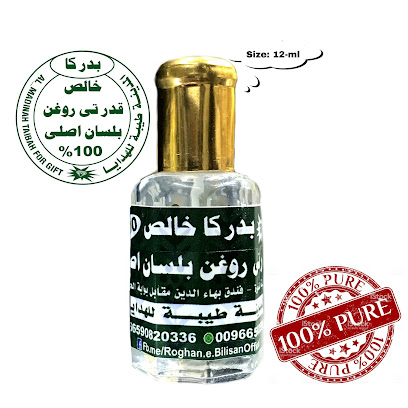
Essential bars & hidden hideouts
Verdan Lounge | ڤيردان لاونج
Experience the perfect blend of traditional and modern cuisines at Verdan Lounge in Madinah, a must-visit culinary destination for tourists.
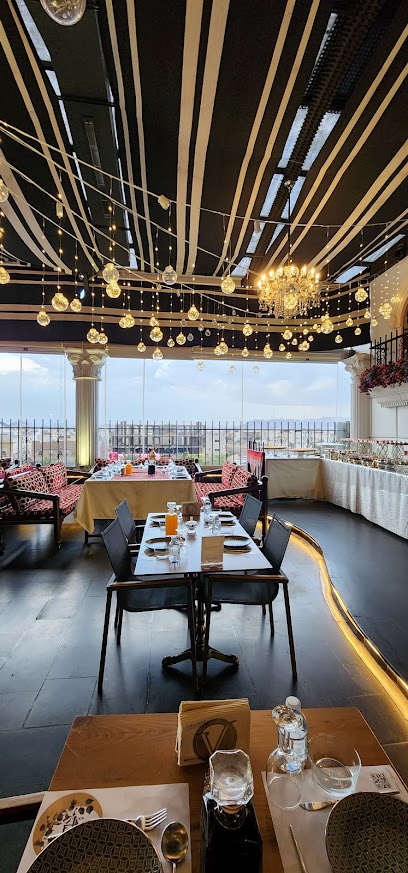
Cacao & More
Discover the sweet side of Madinah at Cacao & More, a charming café offering decadent chocolate delights and savory dishes in a cozy atmosphere.
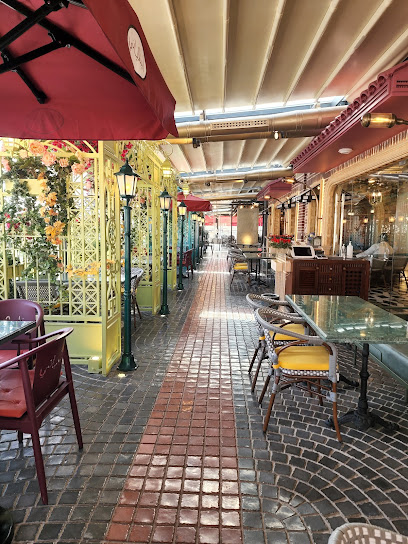
Town Pour
Experience the best of Italian cuisine, fresh bakery delights, and expertly roasted coffee at Town Pour in Madinah.
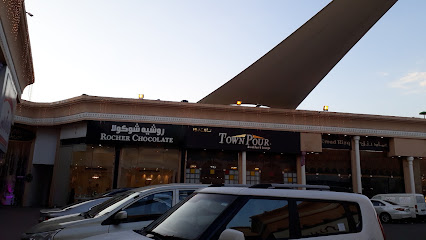
تريس | Tres
Savor the essence of Brazilian cuisine at Tres Steakhouse in Madinah, where every meal is an unforgettable celebration of flavor.
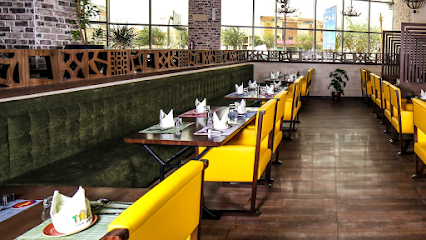
Chili's
Discover a lively dining experience at Chili's in Madinah, where American and Tex-Mex flavors come together to delight your taste buds.
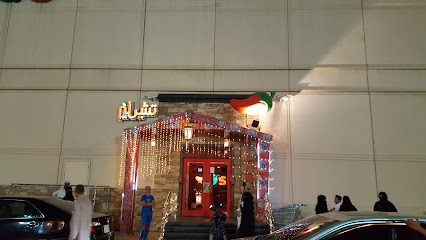
لاجوم لاونج
Discover the perfect blend of café, bakery, and restaurant at Lagom Lounge in Madinah, where culinary delights await every visitor.
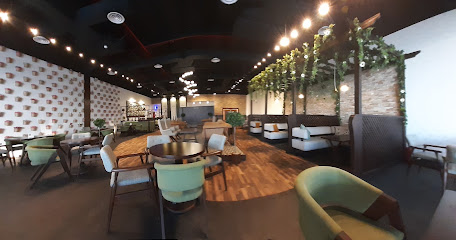
Pistachio Lounge بستاشيو لاونج
Discover a culinary oasis at Pistachio Lounge in Madinah, where indulgent chocolates, aromatic coffee, and exquisite dishes await.
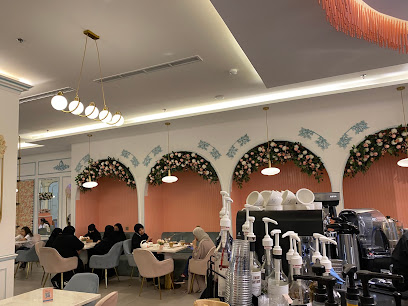
Sea Spice Restaurant
Experience the rich flavors of Middle Eastern cuisine at Sea Spice Restaurant in Madinah, a culinary gem near Al-Masjid an-Nabawi.
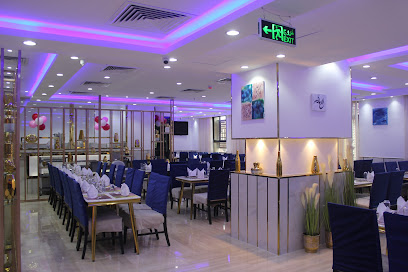
لاونج اوتار زرياب Awtar Zeryab Lounge
Discover the tranquil ambiance of Awtar Zeryab Lounge, where traditional hookah and exquisite coffee meet Middle Eastern hospitality in Madinah.
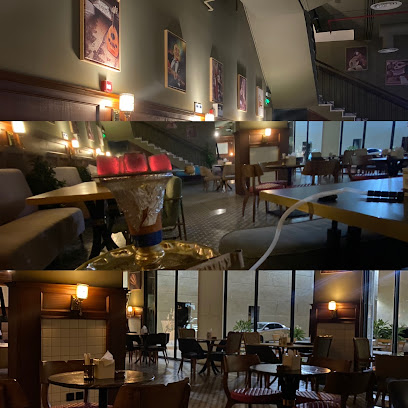
Moon city lounge
Discover Moon City Lounge in Madinah for an unforgettable blend of hookah, coffee, and culinary delights in a vibrant atmosphere.
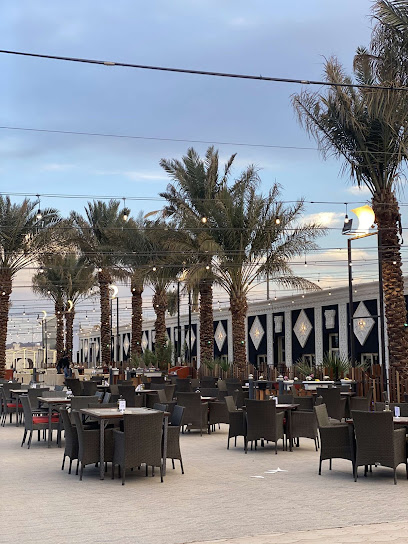
Laso Lounge | لاسو
Experience the tranquil charm of Laso Lounge, a perfect retreat in Madinah offering delightful refreshments in a serene setting.
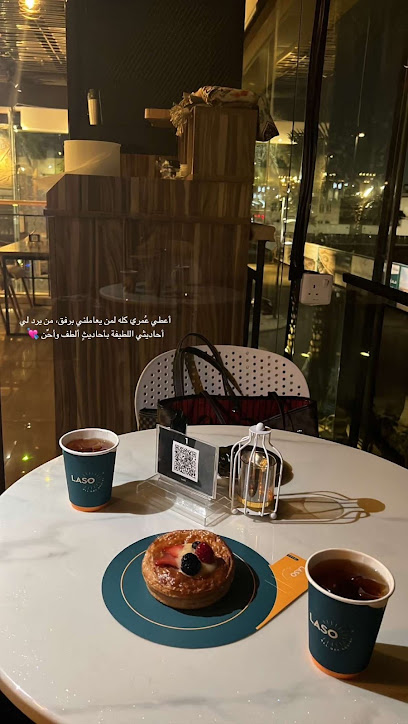
Al Modeef Restaurant
Savor the authentic taste of Saudi cuisine at Al Modeef Restaurant in Madinah, where tradition and flavor come together in a welcoming atmosphere.
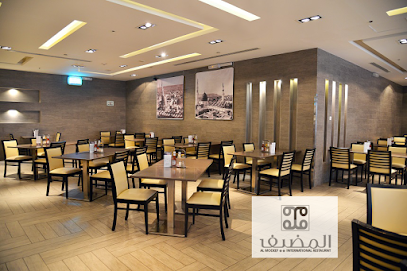
Social Farm سوشل فارم
Discover a serene lounge experience in Madinah at Social Farm, where nature meets comfort and local flavors delight the senses.
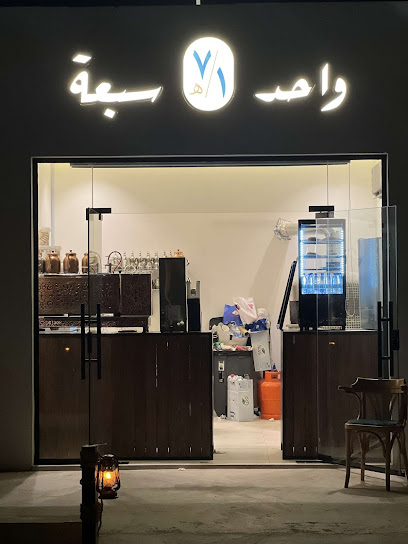
Barn's | بارنز
Discover Barn's in Madinah: A premier coffee shop offering aromatic brews and delicious pastries in a cozy atmosphere.
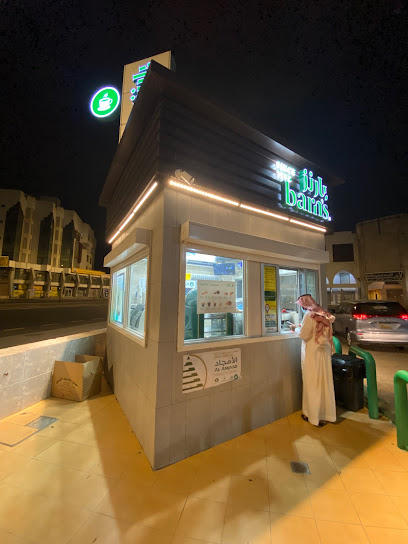
Local Phrases
-
- Helloمرحبا
[marhaban] - Goodbyeوداعا
[wadaean] - Yesنعم
[naam] - Noلا
[laa] - Please/You're welcomeمن فضلك
[min fadlik] - Thank youشكرا
[shukran] - Excuse me/Sorryعذرا
[aathirana] - How are you?كيف حالك؟
[kayf halak?] - Fine. And you?بخير. وأنت؟
[bi-khayr. wa-ant?] - Do you speak English?هل تتحدث الإنجليزية؟
[hal tatahadath al-inglizia?] - I don't understandأنا لا أفهم
[ana la afham]
- Helloمرحبا
-
- I'd like to see the menu, pleaseأريد أن أرى القائمة، من فضلك
[uridu an ara al-qaimah, min fadlik] - I don't eat meatأنا لا آكل اللحم
[ana la akul al-lahm] - Cheers!في صحتك
[fi sahatik] - I would like to pay, pleaseأريد أن أدفع، من فضلك
[uridu an adfaa, min fadlik]
- I'd like to see the menu, pleaseأريد أن أرى القائمة، من فضلك
-
- Help!النجدة!
[al-najdah!] - Go away!انصرف!
[insiraf!] - Call the Police!اتصل بالشرطة!
[iatisal bialshurta!] - Call a doctor!اتصل بطبيب!
[iatisal bitabib!] - I'm lostلقد ضللت الطريق
[laqad dallat al-tariq] - I'm illأنا مريض
[ana mareed]
- Help!النجدة!
-
- I'd like to buy...أريد أن أشتري...
[uridu an ashtari...] - I'm just lookingأنا فقط أتطلع
[ana faqat atatallaa] - How much is it?بكم هذا؟
[bi-kam hadha?] - That's too expensiveهذا غالي جدا
[hadha ghali jiddan] - Can you lower the price?هل يمكنك خفض السعر؟
[hal yumkinuk khafdh al-sa'ar?]
- I'd like to buy...أريد أن أشتري...
-
- What time is it?كم الساعة؟
[kam al-saa'ah?] - It's one o'clockالساعة الواحدة
[al-saa'ah al-wahidah] - Half past (10)العاشرة والنصف
[al-aashirah wan-nisf] - Morningصباح
[sabah] - Afternoonبعد الظهر
[ba'd al-dhuhr] - Eveningمساء
[masaa] - Yesterdayأمس
[ams] - Todayاليوم
[al-yawm] - Tomorrowغدا
[ghadan] - 1واحد
[wahid] - 2اثنان
[ithnaan] - 3ثلاثة
[thalatha] - 4أربعة
[arba'ah] - 5خمسة
[khamsah] - 6ستة
[sittah] - 7سبعة
[sab'ah] - 8ثمانية
[thamania] - 9تسعة
[tasia] - 10عشرة
[ashara]
- What time is it?كم الساعة؟
-
- Where's a/the...?أين...؟
[ayna...?] - What's the address?ما هو العنوان؟
[ma huwa al-anaan?] - Can you show me (on the map)?هل يمكنك أن تريني (على الخريطة)؟
[hal yumkinuk an turini (ala al-kharitah)?] - When's the next (bus)?متى يأتي الحافلة القادمة؟
[mata yati al-hafilah al-qadimah?] - A ticket (to ....)تذكرة (إلى ...)
[tadhkirah (ila ...)]
- Where's a/the...?أين...؟
History of Medina
-
Before the advent of Islam, Medina, known as Yathrib, was a thriving oasis inhabited by various tribes. The city was a hub for agriculture and trade, thanks to its fertile land and strategic location on ancient trade routes. Jewish tribes and Arab tribes coexisted in the city, and its diverse population engaged in commerce, farming, and craft production.
-
In 622 CE, the Prophet Muhammad and his followers migrated from Mecca to Yathrib in an event known as the Hijra. This migration marked the beginning of the Islamic calendar. Yathrib was later renamed Medina, meaning 'The City of the Prophet.' The Hijra was a turning point in Islamic history, establishing Medina as the first Islamic state and a pivotal center for the Muslim community.
-
Shortly after arriving in Medina, Prophet Muhammad established the Charter of Medina, a formal agreement between the various tribes and inhabitants of the city. This charter outlined the rights and duties of all citizens, promoting unity and cooperation among the diverse population. It is considered one of the first written constitutions in the world, setting a precedent for governance and community relations.
-
In 624 CE, the Battle of Badr took place near Medina. This was the first major battle between the early Muslims and the Quraysh tribe of Mecca. Despite being outnumbered, the Muslims achieved a decisive victory, which significantly boosted their morale and established their military prowess. The battle is often cited as a testament to the power of faith and strategic planning.
-
In 625 CE, the Battle of Uhud occurred near the hills of Mount Uhud, just outside Medina. Unlike the Battle of Badr, this confrontation did not end favorably for the Muslims, who faced a significant defeat. Despite the loss, the battle was an important lesson in unity and obedience, reinforcing the importance of collective effort and resilience.
-
In 628 CE, the Treaty of Hudaybiyyah was signed between the Muslims of Medina and the Quraysh tribe of Mecca. The treaty established a ten-year truce and allowed Muslims to perform pilgrimage in Mecca. Although initially perceived as a setback by some, the treaty ultimately facilitated the spread of Islam by enabling peaceful interaction and dialogue between the two communities.
-
In 630 CE, the Muslims, led by Prophet Muhammad, peacefully conquered Mecca. This event marked the culmination of years of conflict and the unification of the Arabian Peninsula under Islam. The Prophet's return to Mecca was characterized by forgiveness and reconciliation, exemplifying the principles of mercy and compassion.
-
After the death of Prophet Muhammad in 632 CE, Medina remained a significant political and religious center as the capital of the Rashidun Caliphate. The first four caliphs, known as the 'Rightly Guided Caliphs,' ruled from Medina, overseeing the expansion of the Islamic empire and the consolidation of Islamic teachings and governance.
-
In the 16th century, Medina became part of the Ottoman Empire, which ruled the city for over four centuries. During this period, the Ottomans invested in the city's infrastructure, including the expansion and renovation of the Prophet's Mosque. Medina flourished as a center of religious learning and pilgrimage, attracting scholars and devotees from across the Muslim world.
-
In the 20th century, Medina underwent significant transformation as part of the Kingdom of Saudi Arabia. The discovery of oil and subsequent economic development led to modernization and urbanization. Today, Medina is a bustling city that seamlessly blends its rich historical heritage with contemporary advancements. The Prophet's Mosque remains a focal point for millions of pilgrims who visit the city each year, reflecting its enduring significance in the Islamic world.
Medina Essentials
-
Medina, known as Al-Madinah Al-Munawwarah, is located in the Hejaz region of Saudi Arabia. The nearest international airport is Prince Mohammad bin Abdulaziz International Airport (MED), which is approximately 15 kilometers from the city center. Direct flights are available from major cities around the world. You can also reach Medina by train through the Haramain High-Speed Railway, connecting it to Jeddah and Mecca, or by bus services operated by the Saudi Public Transport Company (SAPTCO).
-
Medina offers various transportation options. Taxis are plentiful and can be hailed on the street or booked via ride-hailing apps like Uber and Careem. For public transport, Medina has a network of buses operated by SAPTCO, which cover the main routes within the city. Renting a car is another viable option, with several international and local car rental agencies available at the airport and in the city. Walking is also a pleasant option within the central areas, especially around the Prophet's Mosque.
-
The official currency is the Saudi Riyal (SAR). Credit and debit cards are widely accepted in hotels, restaurants, and shops. However, it's advisable to carry some cash for smaller vendors and markets. ATMs are available throughout the city, including at the airport, shopping malls, and near religious sites. Currency exchange services are also available at the airport, banks, and major hotels.
-
Medina is generally considered a very safe city for tourists. The crime rate is low, and the city is well-policed. However, it's always wise to take standard precautions: avoid poorly-lit areas at night, keep your belongings secure, and remain vigilant in crowded places. There are no specific high-crime areas targeting tourists, but always exercise caution and be aware of your surroundings.
-
In case of emergency, dial 911 for police, fire, or medical assistance. Prince Mohammad bin Abdulaziz Hospital and King Fahd Hospital are among the main medical facilities in the city. Pharmacies are widely available for minor health issues. It's advisable to have travel insurance that covers medical emergencies. For lost or stolen items, contact the nearest police station.
-
Fashion: Do dress modestly. Men and women should wear loose-fitting clothing that covers the arms and legs. Women should also cover their hair with a headscarf. Religion: Do show respect for Islamic customs and practices. Non-Muslims are not allowed to enter the Prophet's Mosque, but they can visit parts of the city. Public Transport: Do be respectful of local customs. Avoid eating or drinking on public transport. Greetings: Do greet people with 'As-Salamu Alaikum' (Peace be upon you). Handshakes are common between men but avoid physical contact with the opposite gender. Eating & Drinking: Do try the local cuisine. Don't eat, drink, or smoke in public during the daylight hours of Ramadan.
-
To experience Medina like a local, visit the local markets such as Souq Al-Madina where you can buy traditional goods and souvenirs. Engage with locals who are often welcoming and willing to share insights about their culture and history. Don't miss visiting the Quba Mosque, the first mosque built in Islam, and the Uhud Mountain, a significant historical site. For a unique experience, enjoy a traditional Saudi meal at a local restaurant.
Trending Landmark in Medina
-
Al Masjid an Nabawi
-
Masjid Quba
-
King Fahd Central Park
-
Archers' Hill Uhud
-
Masjid Al Qiblatain
-
The Seven Mosques
-
Al Hijrah Walk
-
متحف السكة الحديد
-
Dar Al Madinah Museum
-
Prince Mohammed bin Abdul Aziz Park
-
Quba Front
-
Masjid Al Ghamamah
-
The International Fair and Museum of the Prophet's Biography and Islamic Civilization
-
Anbariya Mosque
-
Wadi E Jin
Nearby Cities to Medina
-
Things To Do in Yanbu
-
Things To Do in Al Ula
-
Things To Do in Jeddah
-
Things To Do in Mecca
-
Things To Do in Taif
-
Things To Do in Hail
-
Things To Do in Marsa Alam
-
Things To Do in Buraidah
-
Things To Do in Tabuk
-
Things To Do in Al Baha
-
Things To Do in Sakakah
-
Things To Do in Sharm El Sheikh
-
Things To Do in Hurghada
-
Things To Do in Dahab
-
Things To Do in El Gouna











